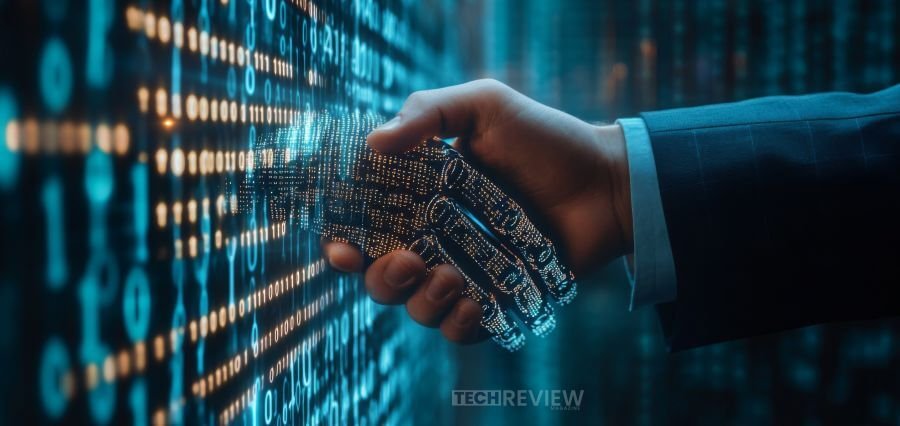Artificial Intelligence (AI) has left the laboratory and is now at the center of contemporary society. What was a science fiction scenario years ago is now ubiquitous in medicine, finance, education, and common amenities. In 2025, AI isn’t what it can do but where it ought to go. The future of AI will be determined by a convergence of technological innovation, ethics, and international collaboration.
This article is a brush with the leading trends that will shape the future of AI — from artificial general intelligence to its increasing role in the labor market, education, and government.
Artificial General Intelligence (AGI) on the Horizon
Artificial General Intelligence (AGI) is a step back from task-specific AI to machines that can reason and be intelligent like humans and can adapt. Leaders in the industry such as Demis Hassabis of DeepMind and Sam Altman of OpenAI have gone on record to state that AGI is possible within the next 5 to 10 years.
AGI has the potential to transform fields like scientific discovery, medical research, and even climate modeling. However, it also raises issues of control, safety, and alignment with human values. Preparing for AGI means establishing strong governance mechanisms and opening up development of AI.
AI in the Workplace and in Daily Life
AI is now infused into the software used daily—from search engines and email to virtual assistants and online commerce. In commerce, AI drives supply chain optimization, customer service bots, and predictive analytics.
Organizations such as Shopify and Duolingo are revolutionizing team collaboration through the adoption of AI in their operations. The workers are meant to be AI-literate, and AI is increasingly being considered less of a tool and more of a collaborator capable of working alongside human beings. The workforce of the future will depend on co-piloting AI systems in a bid to enhance decision-making and productivity.
The Ethical and Regulatory Challenge
With increasing capabilities and ubiquity, regulation and ethics become top-of-mind in public conversation. Data privacy, bias in algorithms, disinformation, and surveillance are no longer theoretical — they’re shaping product design and public policy.
Institutions like the Ada Lovelace Institute and Stanford Human-Centered AI Lab are fighting hard to make AI accountable and just. Governments in Europe, America, and Asia are competing to enact AI laws that promote innovation without jeopardizing safety.
There is now a majority of people public opinion in support of most of the population having more control over AI systems in order to avoid unintended outcomes and safeguard democratic institutions.
AI’s Influence on Work and Skills
Whereas AI will render most routine tasks redundant, it is also opening up new career opportunities. The World Economic Forum approximates that AI will render some jobs redundant but create millions of jobs in the fields of data analysis, AI ethics, prompt engineering, and machine learning operations.
Future professionals will need to accentuate uniquely human values of critical thinking, emotional intelligence, and interdisciplinarity. Education systems will require transformation, such as AI literacy and technical skills being part of regular curriculum so that students are ready to enter AI careers.
Evolution of AI Technology
A few key technologies will shape the future of AI:
Multimodal AI: Models that are capable of processing text, audio, images, and video all at once. They will make apps more intuitive and context-aware.
Edge AI: AI will continue to run on devices such as phones, drones, and sensors within IoT, minimizing latency and maximizing privacy.
Open-Source AI Models: Open AI models enable startups and researchers to innovate on top without being dependent on big tech companies.
Quantum AI: With the maturing of quantum computing, it will bring computational might to AI systems and open up new avenues in optimization, chemistry, and materials science.
AI in Healthcare and Environmental Sustainability
In healthcare, AI is working towards diagnosis, drug discovery, and patient care. Predictive models can detect health risk even before symptoms arise, and robotic surgery is enhancing accuracy and recovery time.
The implications of AI for the environment are smart agriculture, waste minimization, and climate modeling. AI will pave the way to assist humanity in achieving global sustainability objectives, especially when utilized in energy management and biodiversity preservation.
Public Perception and Global Cooperation
The destiny of AI is not just in the hands of developers and businesses but in addition in the reaction of societies. Public trust is paramount. Governments, academia, and industry must cooperate to guarantee AI is a beneficial force.
Efforts globally like the OECD AI Principles and the EU AI Act demonstrate promising steps toward creating internationally accepted standards for AI that is responsible.
Read More- Understanding Deep Learning: The Next Frontier in AI.




